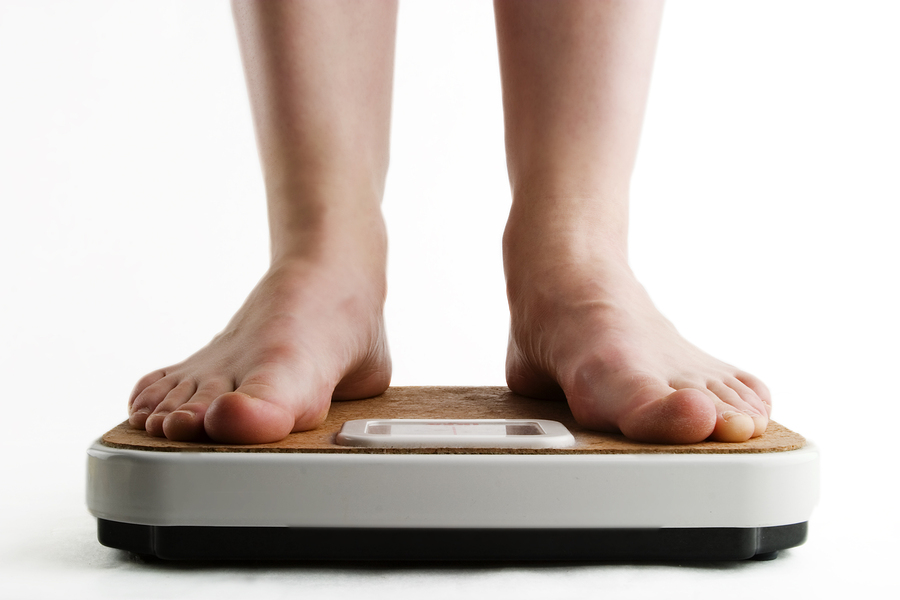 We all have different motivations for losing weight. Some people want to fit into their skinny jeans or wear a bikini when they go on vacation. This group usually follows some kind of gimmick diet or workout regimen, looking for fast and often temporary weight loss.
We all have different motivations for losing weight. Some people want to fit into their skinny jeans or wear a bikini when they go on vacation. This group usually follows some kind of gimmick diet or workout regimen, looking for fast and often temporary weight loss.
Radical weight loss is one of the unhealthiest things we can do to our bodies. That’s why you die on a diet.
Other people believe losing weight will make them healthier. The goal is admirable, but it’s kind of backwards. Instead of viewing weight loss as a way to become healthier, we need to understand that weight loss is simply a byproduct of living a wellness lifestyle.
Before you see a nutritionist who only wants to sell you a supplement, and before you join a gym where a trainer takes your measurements and promises to pump you up, you need to have a better understanding of the science of weight loss.
Most people use two very basic methods for measuring weight loss – standing on the bathroom scale and looking in the mirror. These methods aren’t very scientific, and they don’t take into account several important metrics that need to be analyzed when losing weight as part of a wellness lifestyle.
First of all, real wellness lifestyle changes – and the resulting weight loss – take time and effort. At Natural Healthcare Center, we measure them in months and years, not days and weeks.
Second, the science goes quite a bit deeper than bathroom scales and mirrors. We need to look at the following metrics:
Fat Mass (FM). This number represents the pounds of fat in your body. These are the pounds we want to shed.
Fat Free Mass (FFM). This number represents the pounds of everything else in your body, like muscle, bones, ligaments and tendons. Obviously, we don’t want to lose these pounds.
Suppose you’re on a weight loss program like The Biggest Loser, which I can’t stand, and you lose 100 pounds over the course of a year. What have you really lost? What percentage is actually body fat?
Most dietary protocols can’t tell you what you’re losing. At Natural Healthcare Center, we break it down and show you. If you look at our case studies, you’ll find that 95 percent of the pounds lost by our patients are fat mass. When we see the change in body fat percentage, we know we’re saving people’s lives by dramatically reducing their risk of heart attack, stroke and chronic illness.
We also calculate and monitor Body Mass Index, or BMI. This is a measure of body fat according to an individual’s height and weight that’s commonly used to gather statistics on obesity. Under 18.5 is considered underweight, 18.5-24.9 is considered normal weight, 25-29.9 is considered overweight, and 30 or higher is considered obese.
Another important consideration is Basal Metabolic Rate, or BMR. This is the amount of energy expended while at rest. In other words, BMR is the number of calories your body burns if you lay on the couch all day and do nothing.
For example, Olympic swimmer Michael Phelps eats around 8,000 calories a day. His BMR is like a furnace. We want to be burning as many calories as possible each day while at rest. People who deprive themselves of food because they want to lose weight will lower their BMR, which actually makes weight loss more difficult.
Many times, the body simply won’t let go of a single pound. There’s a metabolic reason for this, and going on a crash diet just makes it worse. Also, our bodies go through many physiological changes that can promote weight gain, including hormonal weight gain. That’s why understanding the scientific reasons for gaining weight, is just as important as understanding the scientific reasons for losing weight.
If we just focus on living a wellness lifestyle based on proven science, weight loss will come – healthy weight loss that’s based on science and easier to maintain. Make this the year that you stop the never-ending cycle of gimmicks and diets and make permanent lifestyle changes that help you feel better, function better and live longer.
Dr. James Proodian is an accomplished chiropractic physician and health educator who founded Proodian Healthcare Family of Companies to help people feel better, function better, and live longer. His expertise for the past two decades has been in physical rehabilitation, and he has successfully established himself as a spinal specialist. In his practice, he advocates the science of functional medicine, which takes an integrative approach to treating patients by addressing their physical, nutritional, and psychological needs. Alarmed by the escalation of complex, chronic illness in our country, Dr. Proodian has been speaking to companies and organizations through his “Wellness at Work” program since 1994, motivating thousands of people to make positive lifestyle choices and lead healthier, more productive lives. He can be heard weekly on his radio program, “Proodian Healthcare By Design,” on Tandem Radio.